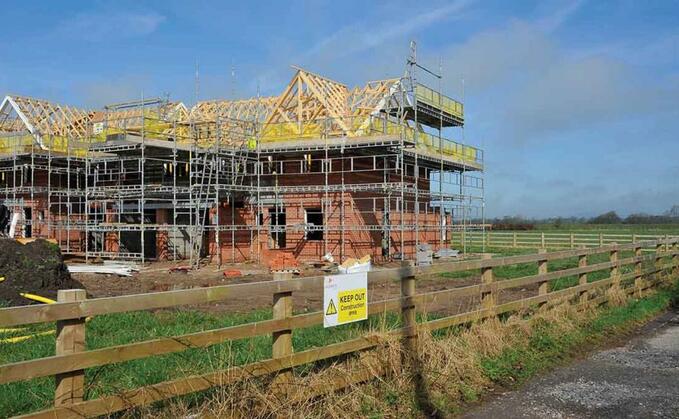
New plans may make it easier for farmers to diversify
Urban centres are to be the focus of the Prime Minister's housing drive as the Government is once again accused of ignoring rural need.
Secretary of State for Levelling Up Michael Gove this week unveiled the Government's ‘transformational' long-term plan for housing, which included a raft of multi-million-pound, city-centred schemes.
While there was relief that the announcement had not led to largescale developers having unfettered access to the countryside, there was frustration from rural campaign groups that countryside communities, desperately in need of affordable homes, had been side lined.
Chief executive of the Rural Services Network Kerry Booth said: "Once again rural has been overlooked in Government policy.
"We were concerned to see the Prime Minister state that: ‘We won't do that by concreting over the countryside - our plan is to build the right homes where there is the most need and where there is local support, in the heart of Britain's great cities...' What about our rural communities?"
Development
Mark Tufnell, president of the Country Land and Business Association (CLA), said: "Rural communities are crying out for a small number of affordable homes. Without sensible development, young people will be driven out of the countryside, businesses will find it harder to find employees and more of our schools, businesses and community spaces will close for good.
"The Government has said it does not want to concrete over the countryside. Nobody wants that, least of all us. But rural communities right now are more afraid of the opposite - no development at all."
However, there was a more positive response to the announced changes to planning laws that will bring benefits to farmer and landowners, making it easier to diversify and convert barns and buildings more easily.
Mr Tufnell said the revisions reflected those championed by the organisation's Rural Powerhouse Campaign.
"We are pleased the Government is beginning to recognise the direct relationship between economic growth and planning reform," said Mr Tufnell.
"The rural economy is 19 per cent less productive than the national average. Closing that gap would add an estimated £43 billion to the economy, so the Government must now act with urgency to deliver these promises and match the ambition of rural businesses at every turn."
The new policies were also cautiously welcomed by Roger Mortlock, chief executive of countryside charity CPRE.
He said: "There are some positive indications that the government is listening on planning. Signs of a shift towards a genuine brownfield first planning policy, with a commitment to regenerate town and city centres, are to be welcomed. So too are the warm words on affordable housing, building the right homes in the right places, and promises to avoid ‘concreting over the countryside'.
"It is promising to see that ministers appear to be trying to balance the competing demands on the countryside to deliver housing, farming, recreation and nature.
"We also need to see the government push through promised changes on speeding up local plan adoption and providing more genuinely affordable homes on large development sites."


























